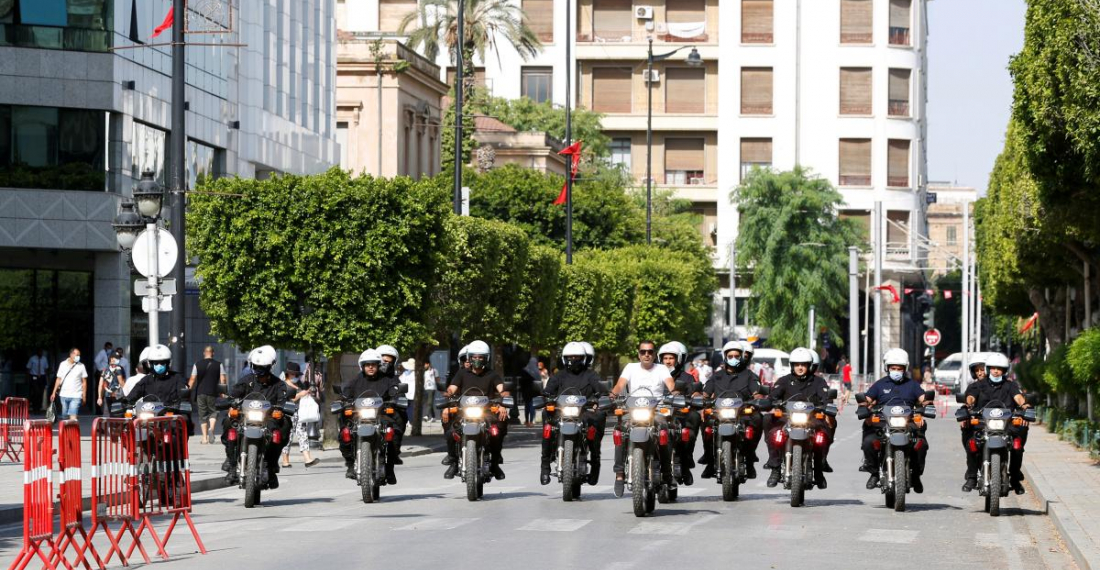The Tunisian presidency sacked the CEO of the national television station Wataniya on Wednesday (28 July), after an activist and a journalism union representative were briefly denied access to the studios, where they were supposed to speak on a program.
Amira Mohamed, vice president of the Tunisian journalists union (SNJT), said she was stopped at the entrance by a security agent who was waiting for authorisation from the channel's management to allow her in.
"The CEO of Wataniya told me that he had received instructions from a military official not to allow guests into the TV headquarters," added human rights activist Bassem Trifi. However, the defence ministry and the presidency denied these allegations, saying they had given no such instructions.
The channel's CEO, Lassaad Dahech, accused of trying to cause trouble by restricting access to the channel, was sacked a few hours later. He was immediately replaced by a journalist who had previously held this interim post, Awatef Dali.
Dahech's dismissal by the presidency comes after that of the prime minister, Hichem Mechichi, on Sunday (25 July), followed by his defence minister, Ibrahim Bartagi, and the government spokesperson, Hasna Ben Slimane, who was also minister of the civil service and acting minister of justice, the next day. On Wednesday, President Kaïs Saïed also issued decrees sacking a long list of senior government officials, including the army's chief prosecutor.
Although Saïed promised to defend and protect civil liberties, the sacking of Dahech increased fears about the respect of freedoms in the young democracy, in particular after the closure of the offices of the Qatari channel Al-Jazeera by the police on Monday. In a statement published later that night, the channel said it viewed the police's raid as “an attack on press freedom”.
Saïed says his suspension of parliament and subsequent actions were justified under article 80 of the constitution to counter an "imminent threat", allowing the head of state to take the unspecified exceptional measures in such a situation. For months now, Tunisia has been facing economic and political crises aggravated by the health crisis caused by the Covid-19 pandemic.







